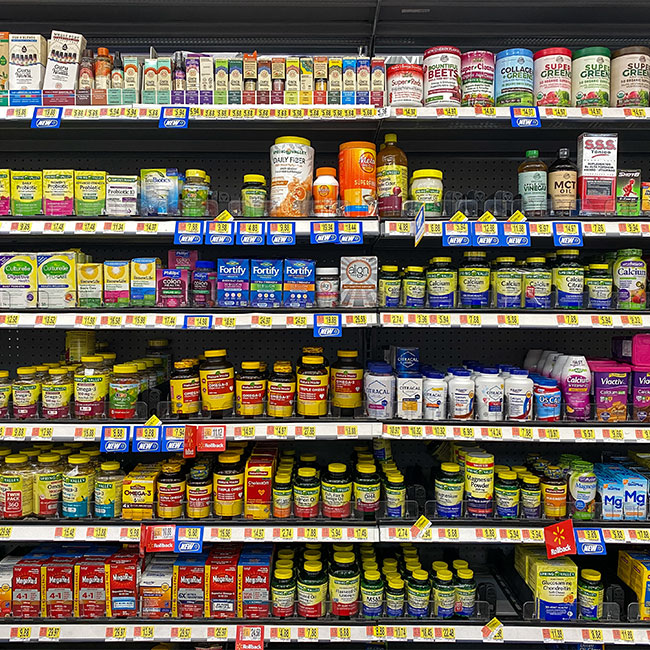This is an archived article and the information in the story may be outdated. Please check the time stamp on the story to see when it was updated last.
Most of us try to enhance our diets through the help of ingestible supplements that deliver the benefits of vitamins and minerals for added health, metabolic, weight loss or other benefits. Whether you take collagen supplements for younger-looking skin or vitamin B for extra energy, supplements tend to work the same: they add vitamins typically found in food to your diet, without the extra food needed.
But supplements might not be all they seem. In fact, some health experts tend to advise against relying too heavily on oral supplements – and there is even one supplement they say everyone should be avoiding.


You might be surprised to learn that multivitamins are usually advised against by health experts. Even though this type of supplement contains a range of vitamins and minerals, they might not be the best choice for most people.
"The mistake is thinking that a multivitamin is covering your bases, so you don’t have to worry about food so much,” Health and nutrition coach Michelle Pfennighaus explained to Shape.

According to Healthline, there is no standard regulation as to what should be added to a multivitamin. The only way to be completely sure of what is in this type of supplement is to read each brand’s individual label. Supplements work best when you take the vitamins your body is actually in need of, so taking a multivitamin may give you a mix of vitamins that aren’t the exact right fit for you.
And studies have shown that there is no evidence that multivitamins are equipped to prevent disease. “Researchers concluded that multivitamins don’t reduce the risk for heart disease, cancer, cognitive decline (such as memory loss and slowed-down thinking) or an early death. They also noted that in prior studies, vitamin E and beta-carotene supplements appear to be harmful, especially at high doses,” Hopkins Medicine wrote.

Several health professionals will even advise against taking oral supplements, unless you have been told otherwise by your own primary healthcare provider.
“Food should be your primary source of vitamins, minerals and antioxidants,” Dr. Sherry Ross told SheFinds a few years ago. “When whole foods are broken down or stored, the nutrients work together to promote optimal health in a way supplements cannot. Vitamin supplements play an essential role to fill in the gaps and provide nutritional insurance for those nutrients missing from your diet.”

The best way to ensure your body is getting an appropriate amount of every vitamin and nutrient is to eat a balanced diet with protein, vegetables and high-fiber grains every day.
Dr. Ross continued, “Eating healthy foods and avoiding a commercially created, preservative-rich diet, is ideal for optimal health. Whole foods are recognized, metabolized and utilized more easily and naturally in the body than supplements. Supplements do not offer the body the same nutritional advantages as whole foods.”


























